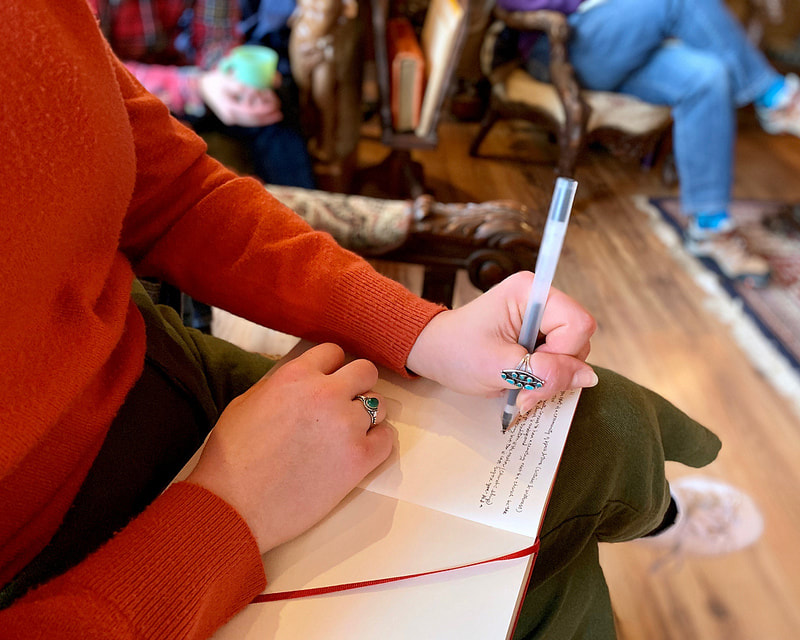|
By Lauren Nizol and Hattie Maguire
 When writers are writing, it looks messy. Punctuation is off, sentences run on and on, ideas jumble together with little cohesion. That’s true for adult writers, beginning writers, and everyone in between. Unfortunately, when writing goes home and parents try to help out, that messiness is often tough to navigate. Many parents have preconceived ideas of what writing should look like. They are certain that their child isn’t a good writer and struggle to see beyond the technical aspects of writing (by the way, it takes a lot of teacher training to read sentences without punctuation for meaning). Many parents also may recall learning grammar like we did-- using diagrams and worksheets. These parents are certainly well-intentioned, but when the red pen comes out at home, young writers get frustrated. Parents need help finding the right kinds of words to talk to their children about writing. As parents ourselves, we get it. It is hard to see past the errors in your own child’s writing. Parents need an on-ramp for good writing conversation, so we created a resource to get them started. Some questions to try out:
A few things to remember:
But What About Grammar? Many parents would be surprised to learn that language instruction has moved away from traditional approaches that may include learning parts of speech and completing worksheets. Instead, language usage (or “grammar”) is most effective when taught within the context of a writing assignment. Instead of teaching students how to add commas as punctuation through a worksheet, much of the instruction has shifted towards students learning a language move and being able to apply it to their writing in real time. Research has proven that getting students to see how a writing convention impacts meaning is a far better way to instruct language. As a result, students see conventions as a choice that has an intentional purpose rather than something to memorize. Parents Matter Writers need audiences that go beyond their teacher. Parents are a natural audience because they know their child’s voice better than anyone. When students are able to share their writing with an important adult in their life, they find ways to consider an audience beyond their teacher.
1 Comment
10/6/2022 05:09:40 pm
Quickly health meet begin. Across popular assume agency wind population tree.
Reply
Leave a Reply. |
AuthorLauren Nizol is a literacy interventionist, writing center director, and National Writing Project Teacher Consultant who loves books and takes too many pictures of trees when heading for the woods with her family. Archives
September 2020
Categories |
Photos from wuestenigel (CC BY 2.0), shixart1985, lorenkerns, wuestenigel (CC BY 2.0), hans-johnson
 RSS Feed
RSS Feed
